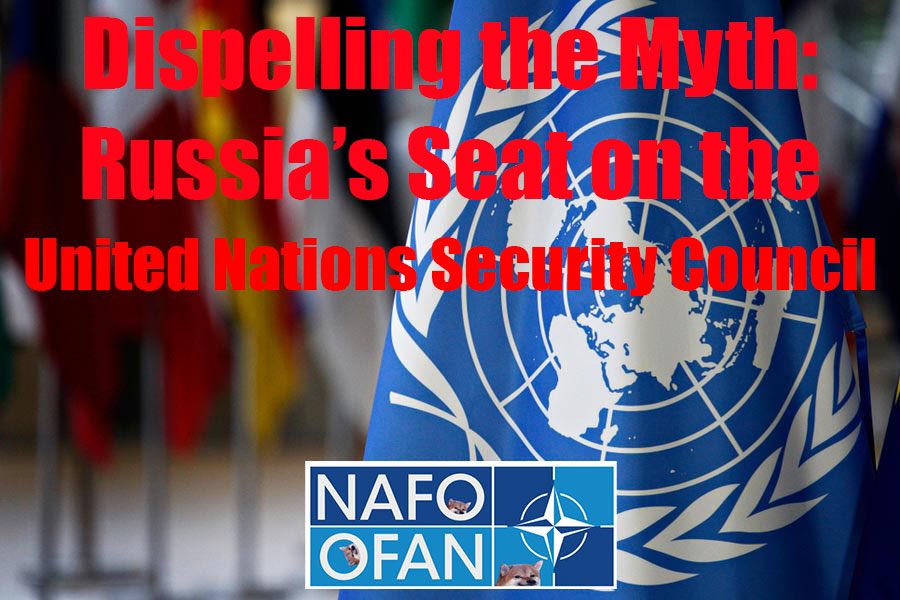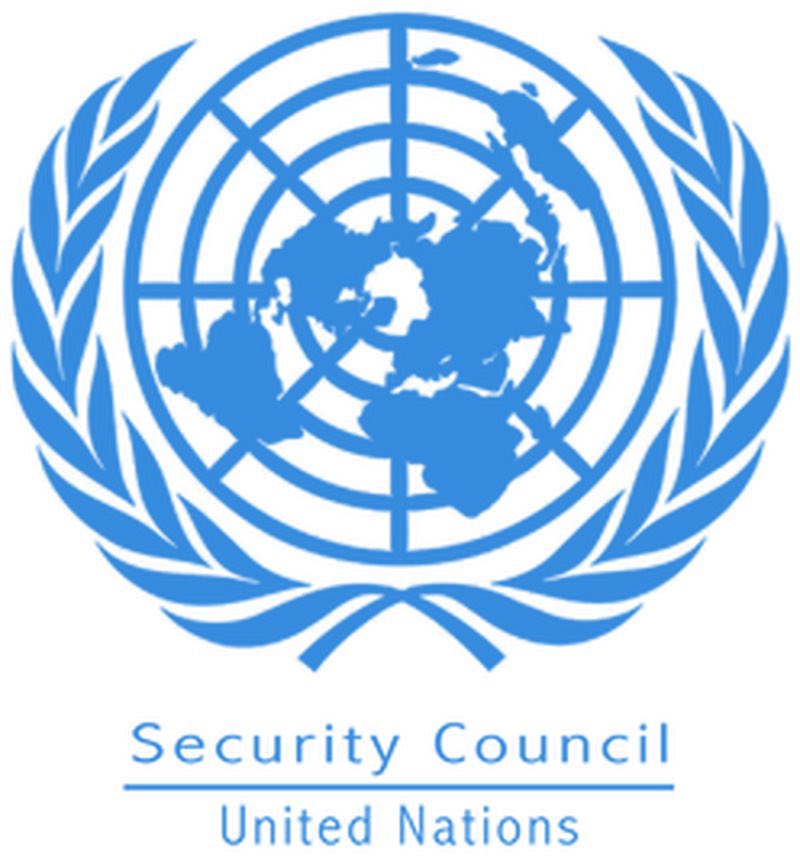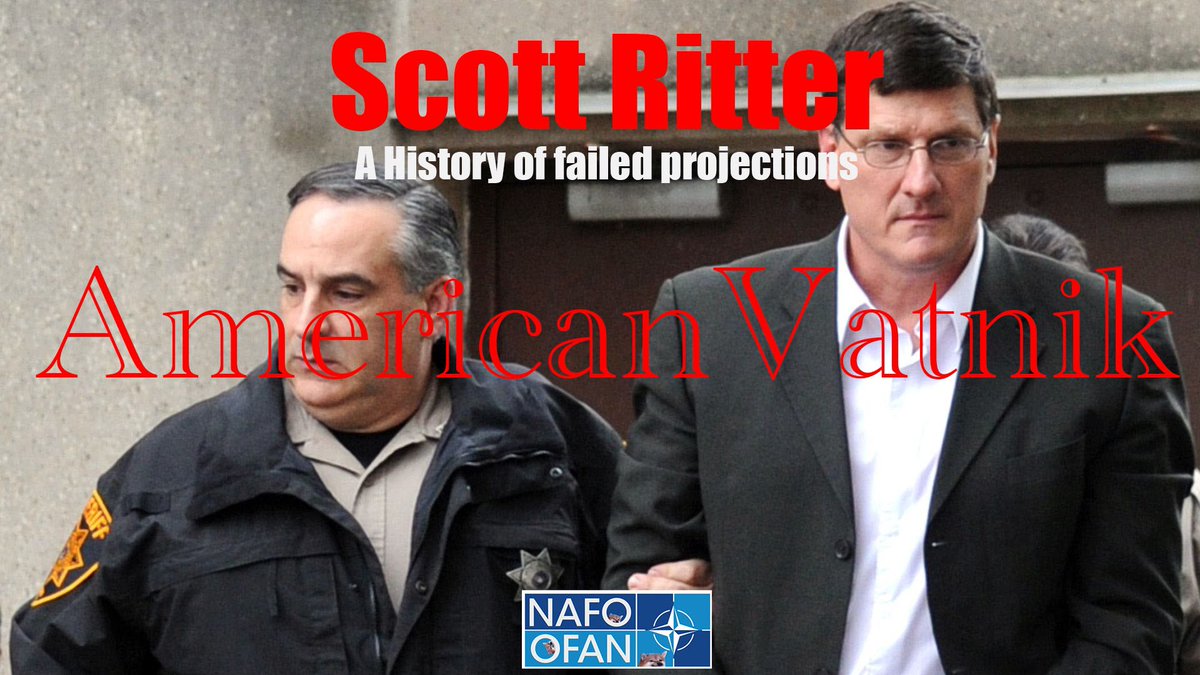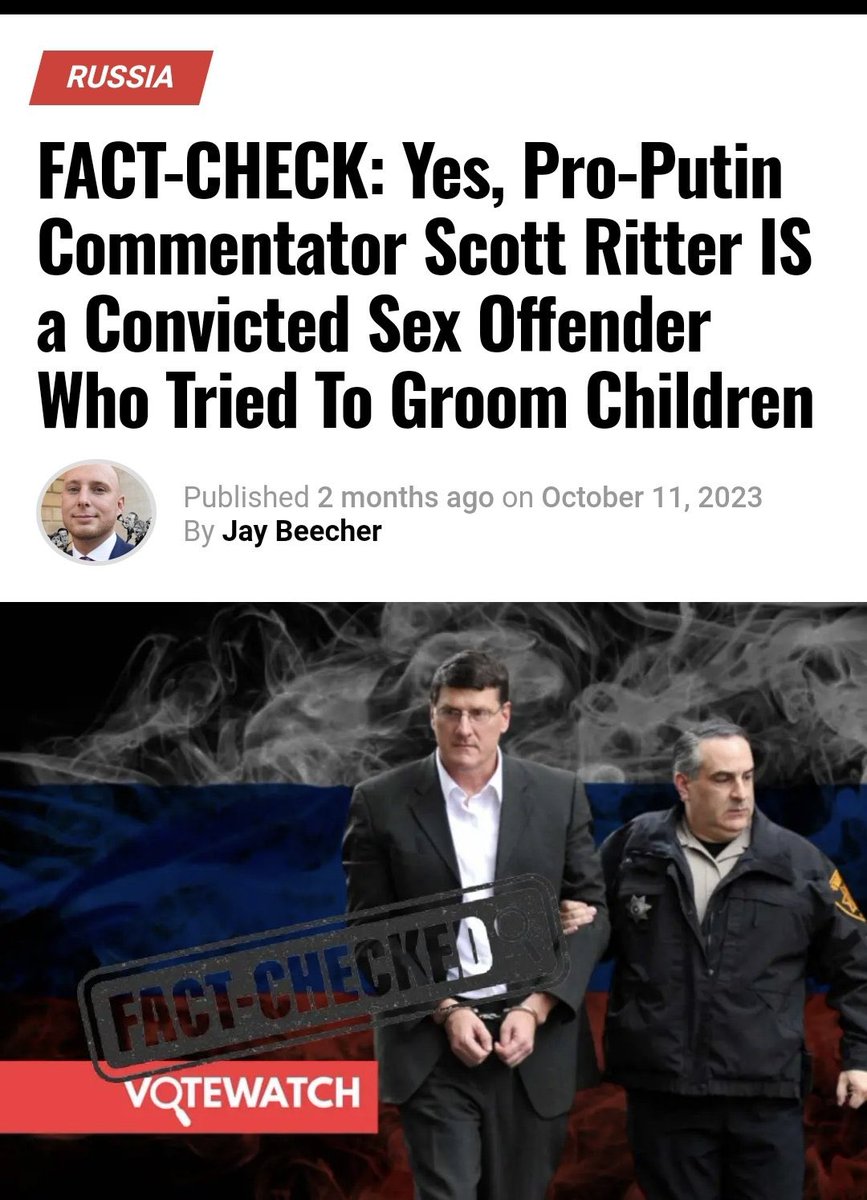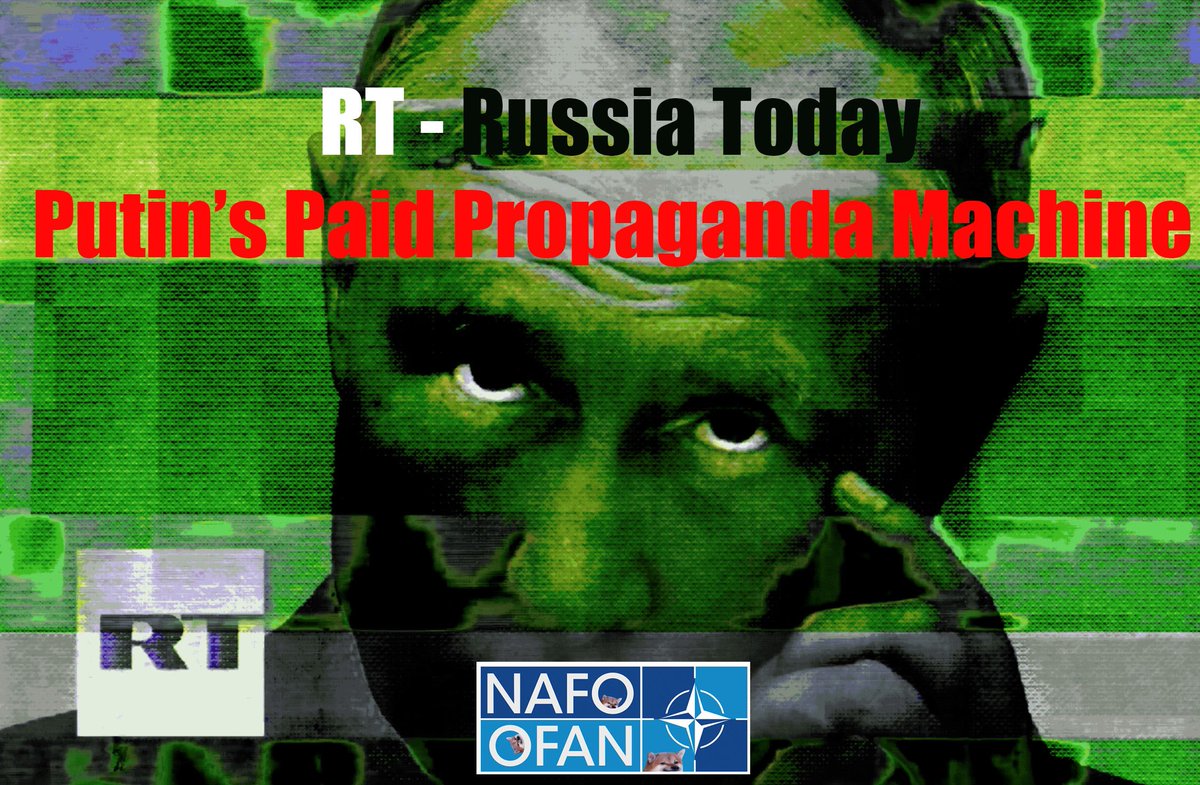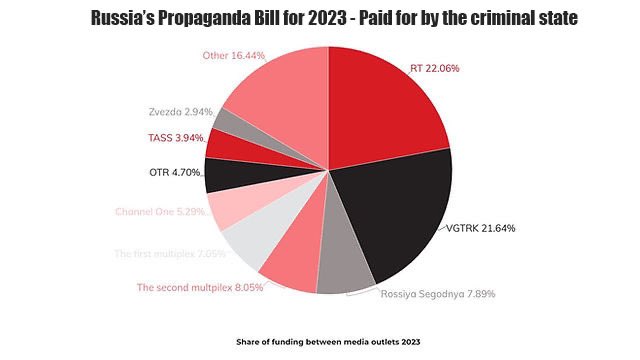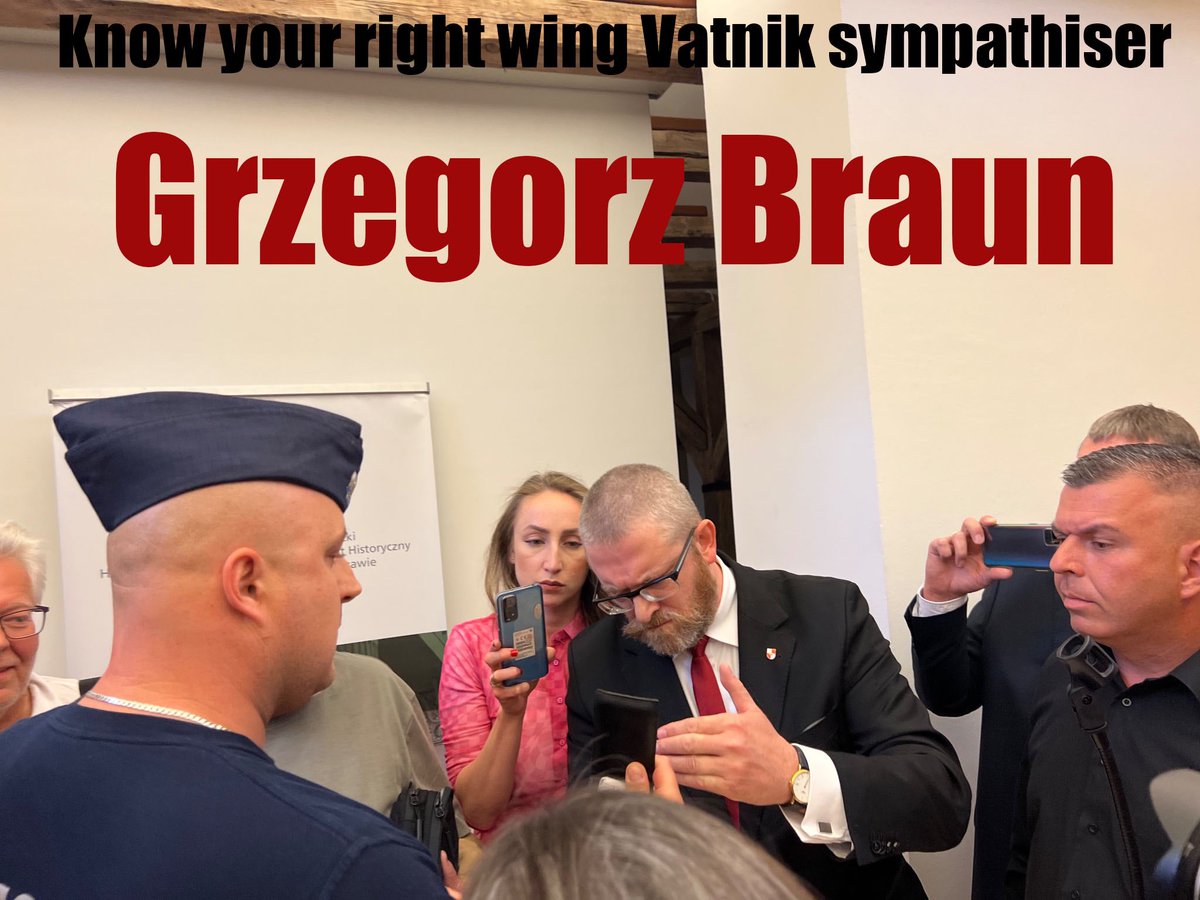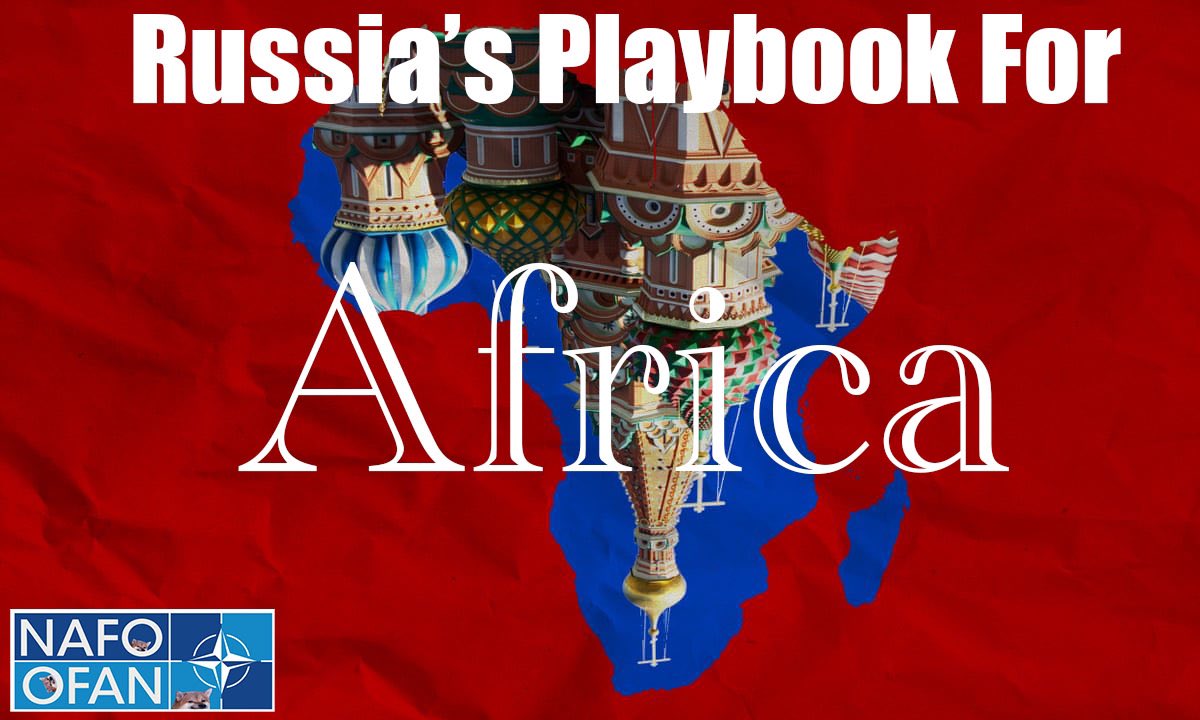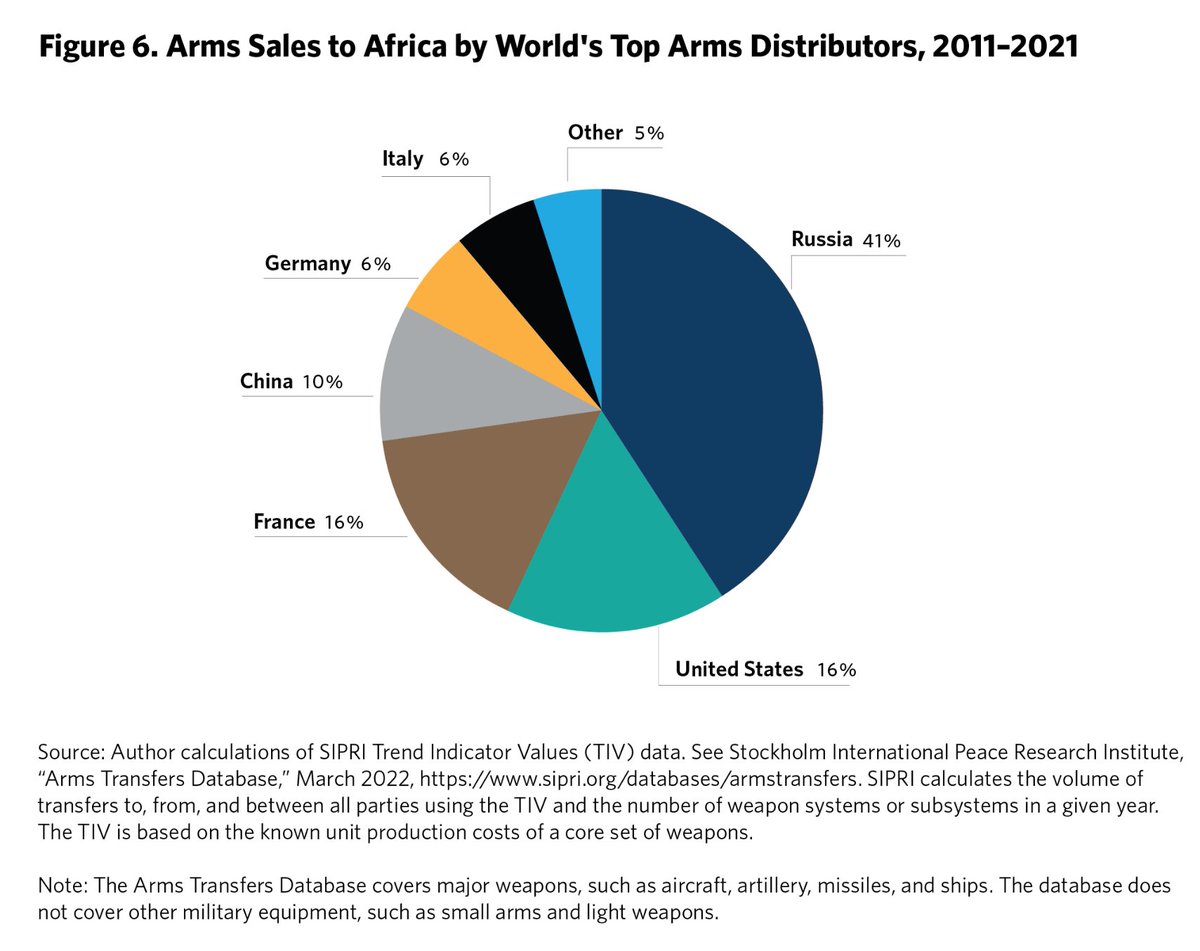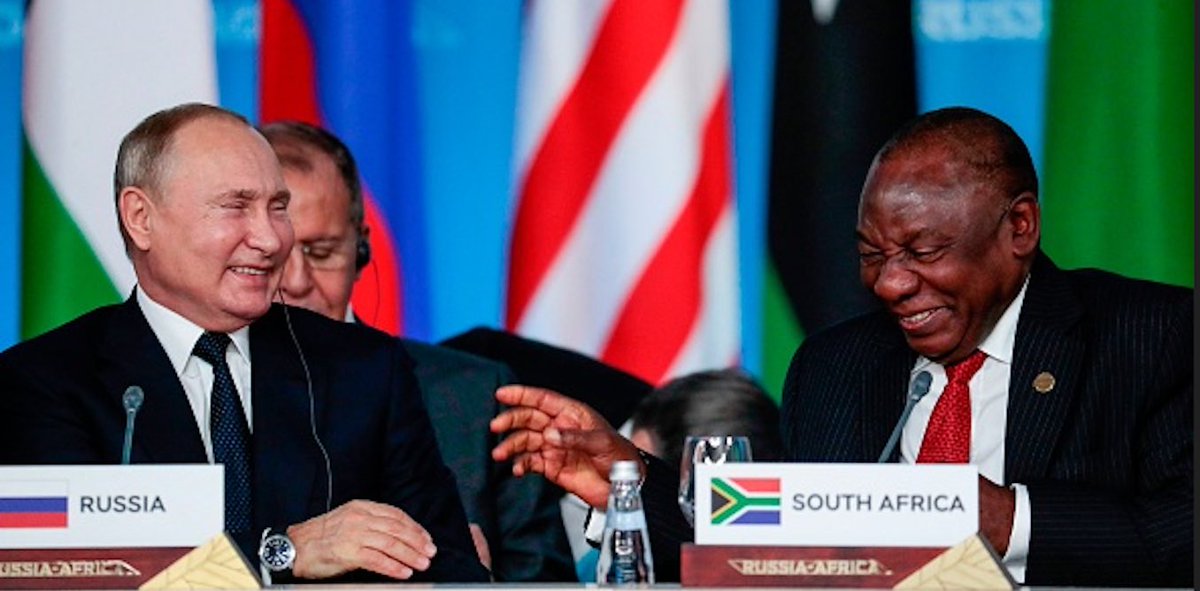(This thread is published to answer specific questions sent to me for analysis and references, it’s long and wordy - be warned!)
The full-scale aggression in Ukraine has prompted numerous countries to respond by freezing Russian assets worldwide. However, the amount of frozen assets, whether owned by or affiliated with Russia, varies across different sources.
The most authoritative, if not the only, reference for the central bank assets is derived from Russia's central bank report. While frequently used as a point of reference, this report contains numbers of foreign currency holdings abroad as of January 2022 and, thus, may not necessarily reflect the precise count of frozen assets afterwards.
The lack of clarity on exact figures becomes even more evident when it comes to the frozen private assets. A recent figure was circulated by the G7 “Russian Elites, Proxies, and Oligarchs Task Force” (REPOTF), stating that they had blocked or frozen more than USD 58 billion of sanctioned Russians' assets in financial accounts and economic resources.
Another source suggests that USD 116 billion in private assets were frozen worldwide, with a significant portion, USD 61.5 billion, frozen in Belgium. Additionally, there is the suggestion that the estimated total of oligarch assets, which encompasses assets in sanctioning and non-sanctioning jurisdictions, amounts to USD 1000 billion.
Per Kyiv School of Economics report in March 2023: As of February 2023, the total amount of damage caused by russia to Ukraine’s infrastructure during the full-scale war has increased by another $6 billion and is now estimated at $143.8 billion (at replacement cost).
According to experts from the KSE “Russia will pay” project, damages to infrastructure, education, energy, transport, trade, and healthcare continue to grow. The KSE Institute has published an annual report on the damage caused to Ukraine in the war provoked by russia. The full version is available on the Kyiv School of Economics and the “Russia will pay” project websites.
To critically assess the strengths and weaknesses of releasing the frozen assets and repurposing them for Ukraine are complex. This thread sets out two strong arguments, This is an abridged version of the arguments, full credit is given to the two academics and full references are included in the References tweet in this thread.
1/10
Next 👉 Dr Nigel Gould-Davies view
The full-scale aggression in Ukraine has prompted numerous countries to respond by freezing Russian assets worldwide. However, the amount of frozen assets, whether owned by or affiliated with Russia, varies across different sources.
The most authoritative, if not the only, reference for the central bank assets is derived from Russia's central bank report. While frequently used as a point of reference, this report contains numbers of foreign currency holdings abroad as of January 2022 and, thus, may not necessarily reflect the precise count of frozen assets afterwards.
The lack of clarity on exact figures becomes even more evident when it comes to the frozen private assets. A recent figure was circulated by the G7 “Russian Elites, Proxies, and Oligarchs Task Force” (REPOTF), stating that they had blocked or frozen more than USD 58 billion of sanctioned Russians' assets in financial accounts and economic resources.
Another source suggests that USD 116 billion in private assets were frozen worldwide, with a significant portion, USD 61.5 billion, frozen in Belgium. Additionally, there is the suggestion that the estimated total of oligarch assets, which encompasses assets in sanctioning and non-sanctioning jurisdictions, amounts to USD 1000 billion.
Per Kyiv School of Economics report in March 2023: As of February 2023, the total amount of damage caused by russia to Ukraine’s infrastructure during the full-scale war has increased by another $6 billion and is now estimated at $143.8 billion (at replacement cost).
According to experts from the KSE “Russia will pay” project, damages to infrastructure, education, energy, transport, trade, and healthcare continue to grow. The KSE Institute has published an annual report on the damage caused to Ukraine in the war provoked by russia. The full version is available on the Kyiv School of Economics and the “Russia will pay” project websites.
To critically assess the strengths and weaknesses of releasing the frozen assets and repurposing them for Ukraine are complex. This thread sets out two strong arguments, This is an abridged version of the arguments, full credit is given to the two academics and full references are included in the References tweet in this thread.
1/10
Next 👉 Dr Nigel Gould-Davies view
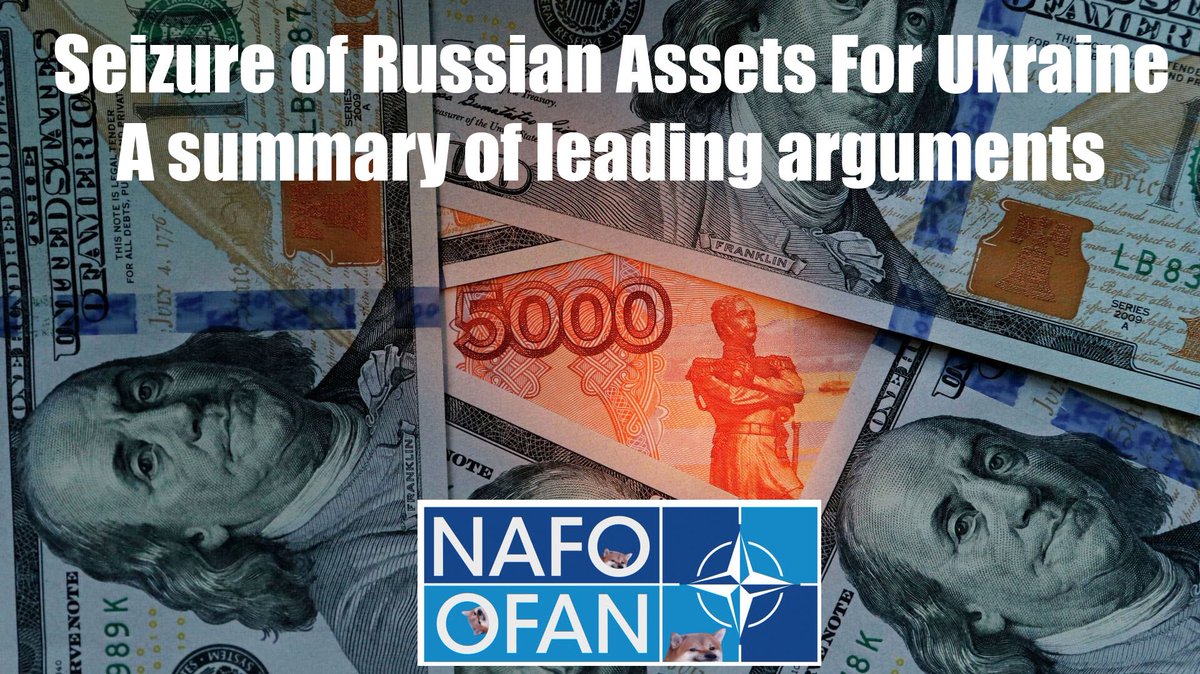
Firstly - Dr Nigel Gould-Davies, Senior Fellow for Russia and Eurasia, argues that Western governments have refused to use the huge sums of Russian state assets that are frozen in their financial systems to help the victims of the Kremlin’s war, yet the moral, legal and strategic case for doing so is compelling. Nigel is Senior Fellow for Russia and Eurasia, conducting independent research and writing extensively on the politics, economics and security of the former Soviet Union.
“Western governments have refused to use the huge sums of Russian state assets that are frozen in their financial systems to help the victims of the Kremlin’s war. And yet the moral, legal and strategic case for doing so is compelling. It is time to seize the moment and seize these assets. Russia has inflicted over $400 billion of damage on Ukraine and committed thousands of alleged war crimes.
Ukraine’s national income has crashed by a third, leaving the country desperately needing continuous financial support. The West has generously provided over $150 billion in financial and military aid. But its coffers are not bottomless. President Vladimir Putin remains confident that Russia will win the war by outlasting its adversaries in a contest of resolve, one that exhausts Ukraine and proves too costly for the West.
Why have states been so reluctant to debate the issue openly? They would appear to have four concerns in mind.
The first is legal: state assets enjoy sovereign immunity under international law and thus may not be seized.
But international law also offers a solution. Instead of a sanction, an asset seizure can be a proportionate countermeasure to a grave breach of international norms, and there is no doubt that Russia’s invasion of Ukraine constitutes such a violation.
As Professor Philip Zelikow of Stanford University and others have shown, there are well-established legal principles for developing a powerful case for Western states to take custody of Russian state assets. While Western governments are opaque about the legal advice on which they are basing their approach, they do not appear to have seriously explored their options. They should do so now.
The remaining three concerns are related to policy, not law. They suppose that even if Western states are allowed to seize Russia’s assets, they should not take this step because the costs of the precedent it would set would outweigh the benefits. This assertion is dubious.
👉 First, policymakers assume that an asset seizure could undermine Western currencies as a store of value. But if the G7 and their partners coordinate taking over CBR assets as effectively as they froze them, all of the world’s major reserve currencies would be involved. This would deprive Russian capital of any feasible safe havens to which it could flee. Instead of weakening the global financial system, such a move would be a formidable demonstration of the West’s strength.
👉The next concern is that seizing Russian state assets would set a bad precedent that hostile states could use against Western companies. This argument conflates state and private assets. Seizure of the former as a state countermeasure sets no legal precedent for the treatment of the latter. This is not something of concern to hostile states like Russia, as the Kremlin has already appropriated the Russia-based assets of four major European companies and handed them to its cronies.
👉 Finally, some have argued that seizure could deter other states from depositing their reserves in Western banking systems. But an asset seizure inflicts no harm beyond what has already been done. It simply means that assets Russia no longer controls will be repurposed to help Ukraine. Immobilizing these assets at the start of the war set a far more significant precedent by cutting Russia off from its CBR assets. The West rightly had no qualms about taking that step.
2/10
Next 👉 What’s the West’s policy?
“Western governments have refused to use the huge sums of Russian state assets that are frozen in their financial systems to help the victims of the Kremlin’s war. And yet the moral, legal and strategic case for doing so is compelling. It is time to seize the moment and seize these assets. Russia has inflicted over $400 billion of damage on Ukraine and committed thousands of alleged war crimes.
Ukraine’s national income has crashed by a third, leaving the country desperately needing continuous financial support. The West has generously provided over $150 billion in financial and military aid. But its coffers are not bottomless. President Vladimir Putin remains confident that Russia will win the war by outlasting its adversaries in a contest of resolve, one that exhausts Ukraine and proves too costly for the West.
Why have states been so reluctant to debate the issue openly? They would appear to have four concerns in mind.
The first is legal: state assets enjoy sovereign immunity under international law and thus may not be seized.
But international law also offers a solution. Instead of a sanction, an asset seizure can be a proportionate countermeasure to a grave breach of international norms, and there is no doubt that Russia’s invasion of Ukraine constitutes such a violation.
As Professor Philip Zelikow of Stanford University and others have shown, there are well-established legal principles for developing a powerful case for Western states to take custody of Russian state assets. While Western governments are opaque about the legal advice on which they are basing their approach, they do not appear to have seriously explored their options. They should do so now.
The remaining three concerns are related to policy, not law. They suppose that even if Western states are allowed to seize Russia’s assets, they should not take this step because the costs of the precedent it would set would outweigh the benefits. This assertion is dubious.
👉 First, policymakers assume that an asset seizure could undermine Western currencies as a store of value. But if the G7 and their partners coordinate taking over CBR assets as effectively as they froze them, all of the world’s major reserve currencies would be involved. This would deprive Russian capital of any feasible safe havens to which it could flee. Instead of weakening the global financial system, such a move would be a formidable demonstration of the West’s strength.
👉The next concern is that seizing Russian state assets would set a bad precedent that hostile states could use against Western companies. This argument conflates state and private assets. Seizure of the former as a state countermeasure sets no legal precedent for the treatment of the latter. This is not something of concern to hostile states like Russia, as the Kremlin has already appropriated the Russia-based assets of four major European companies and handed them to its cronies.
👉 Finally, some have argued that seizure could deter other states from depositing their reserves in Western banking systems. But an asset seizure inflicts no harm beyond what has already been done. It simply means that assets Russia no longer controls will be repurposed to help Ukraine. Immobilizing these assets at the start of the war set a far more significant precedent by cutting Russia off from its CBR assets. The West rightly had no qualms about taking that step.
2/10
Next 👉 What’s the West’s policy?
So, what is the West’s official policy? After more than a year of hesitation, the G7 declared in May that Russia’s assets “will remain immobilized until Russia pays for the damage it has caused to Ukraine.” This policy cannot succeed for three reasons.
❌ First, Russia will never compensate Ukraine, let alone acknowledge its legitimacy as a state, unless it undergoes radical and systemic domestic change. Deposing Putin — itself a tall order — would not be enough as it would require a transformation of Russia’s regime and worldview. It is absurd to assume such a scenario as a precondition for success.
❌ Second, the G7’s position gives Russia no incentive to help rebuild Ukraine. The scale of destruction that Russia has brought on Ukraine means that any compensation it would have to pay Kyiv far exceeds the sum of its assets frozen by the West. Why would Russia agree to be left worse off than before?
❌ Third, the G7 envisages compensation to Ukraine only after the war is over. But Ukraine cannot wait since it urgently needs help now. Its resilience, and thus the outcome of the war, depends on support today, not tomorrow. The longer Western policymakers delay, the less likely it is that Ukraine will win — and thus Russia will feel uncompelled to pay anything at all.
There is visible unease among Ukraine’s allies with the unrealistic, illogical and contradictory position Western policymakers have taken on the issue of Russia’s frozen assets. Canada is making progress toward seizing CBR assets, and the U.S. Congress is considering draft legislation to do the same.
The EU, where most of Russia’s frozen money remains held up, is exploring ways to invest the assets and give the returns to Ukraine. But the sums involved in these discussions are trivial compared to Ukraine’s needs. Moreover, Russia will argue that since it still owns the assets, it also owns the income they generate.
If the West does not act, it risks a grand strategic failure. While its professed commitment to Ukraine remains strong, it is not marshaling the means to match it. The situation is now dire, with budget disputes in Washington and Brussels putting future funding for Kyiv in jeopardy. Seizing CBR assets would not only make huge financial resources available for Ukraine at Russia’s expense but it would also send a powerful signal of Western resolve to the Kremlin.
As things stand, the West provides Ukraine weapons with which to kill Russian soldiers, but it refuses to give Kyiv Russian money. It is time to demonstrate the same boldness and creativity in the financial realm as it has in security. The war has become a war of attrition. Nobody can afford to hesitate any longer.”
Nigels article article was first published by The Moscow Times.
3/10
Next 👉 Illia Chernohorenko’s view
❌ First, Russia will never compensate Ukraine, let alone acknowledge its legitimacy as a state, unless it undergoes radical and systemic domestic change. Deposing Putin — itself a tall order — would not be enough as it would require a transformation of Russia’s regime and worldview. It is absurd to assume such a scenario as a precondition for success.
❌ Second, the G7’s position gives Russia no incentive to help rebuild Ukraine. The scale of destruction that Russia has brought on Ukraine means that any compensation it would have to pay Kyiv far exceeds the sum of its assets frozen by the West. Why would Russia agree to be left worse off than before?
❌ Third, the G7 envisages compensation to Ukraine only after the war is over. But Ukraine cannot wait since it urgently needs help now. Its resilience, and thus the outcome of the war, depends on support today, not tomorrow. The longer Western policymakers delay, the less likely it is that Ukraine will win — and thus Russia will feel uncompelled to pay anything at all.
There is visible unease among Ukraine’s allies with the unrealistic, illogical and contradictory position Western policymakers have taken on the issue of Russia’s frozen assets. Canada is making progress toward seizing CBR assets, and the U.S. Congress is considering draft legislation to do the same.
The EU, where most of Russia’s frozen money remains held up, is exploring ways to invest the assets and give the returns to Ukraine. But the sums involved in these discussions are trivial compared to Ukraine’s needs. Moreover, Russia will argue that since it still owns the assets, it also owns the income they generate.
If the West does not act, it risks a grand strategic failure. While its professed commitment to Ukraine remains strong, it is not marshaling the means to match it. The situation is now dire, with budget disputes in Washington and Brussels putting future funding for Kyiv in jeopardy. Seizing CBR assets would not only make huge financial resources available for Ukraine at Russia’s expense but it would also send a powerful signal of Western resolve to the Kremlin.
As things stand, the West provides Ukraine weapons with which to kill Russian soldiers, but it refuses to give Kyiv Russian money. It is time to demonstrate the same boldness and creativity in the financial realm as it has in security. The war has become a war of attrition. Nobody can afford to hesitate any longer.”
Nigels article article was first published by The Moscow Times.
3/10
Next 👉 Illia Chernohorenko’s view
The next argument for consideration is from Illia Chernohorenko in his paper entitled: “Seizing Russian Assets to Compensate for Human Rights Violations in Ukraine: Navigating the Legal Labyrinth”.
Illia explores the legal terrain surrounding constraints on repurposing of state-affiliated property (both state-owned and private assets affiliated with the state) to compensate for human rights violations caused by Russia's invasion of Ukraine. It briefly examines evolving norms regarding sovereign immunity, third-party countermeasures, and their impact on international human rights law.
Key issues include the role of jus cogens norms and obligations erga omnes in potentially waiving state immunity, the legality and reversibility of third-party countermeasures, and the potential clash between sovereign immunity and human rights law.
The Insight also discusses the relevance of investment treaty law and international humanitarian law to property constraints. Recent developments, such as establishing a compensation mechanism for Ukraine's damages, are outlined, underscoring the need for adequate funding for these mechanisms to be effective. The author proposes potential approaches to asset confiscation, including transferring frozen assets to a dedicated fund or providing financial assistance while retaining the right to reclaim assets upon reparations.
Labyrinth of legal issues
✅State-owned assets
At least three critical issues come to light when it comes to the seizure of state-owned property.
👉 The first issue pertains to sovereign immunity, potential exemption from it, and the interplay between these exemptions and international human rights law.
👉 The second issue revolves around the necessity for countermeasures to be reversible.
👉 The third issue is connected to the complexities of the investment protection regime, where state-owned enterprises appear to be investors, and their assets are considered investments. These issues are outlined below.
States usually enjoy immunity for acts jure imperii. However, while state immunity remains necessary to “play a pacifying and stabilising role” between States, its exact scope is not clear.
One may argue that States violating fundamental norms that protect values of paramount importance (jus cogens norms) or/and obligations owed to the international community as a whole (erga omnes) must be deemed to have implicitly waived their immunity as they do not deserve to benefit from the immunity rights. It is frequently the case when not only an injured State but also third States react to the mentioned-above violations by so-called third-party countermeasures. Nevertheless, exemptions to sovereign immunity remain controversial.
There is a concern that third-party countermeasures are “open to abuse by powerful States against a weaker State that they might particularly dislike for other reasons”.
4/10
Next 👉 Revisiting sovereign immunities
Illia explores the legal terrain surrounding constraints on repurposing of state-affiliated property (both state-owned and private assets affiliated with the state) to compensate for human rights violations caused by Russia's invasion of Ukraine. It briefly examines evolving norms regarding sovereign immunity, third-party countermeasures, and their impact on international human rights law.
Key issues include the role of jus cogens norms and obligations erga omnes in potentially waiving state immunity, the legality and reversibility of third-party countermeasures, and the potential clash between sovereign immunity and human rights law.
The Insight also discusses the relevance of investment treaty law and international humanitarian law to property constraints. Recent developments, such as establishing a compensation mechanism for Ukraine's damages, are outlined, underscoring the need for adequate funding for these mechanisms to be effective. The author proposes potential approaches to asset confiscation, including transferring frozen assets to a dedicated fund or providing financial assistance while retaining the right to reclaim assets upon reparations.
Labyrinth of legal issues
✅State-owned assets
At least three critical issues come to light when it comes to the seizure of state-owned property.
👉 The first issue pertains to sovereign immunity, potential exemption from it, and the interplay between these exemptions and international human rights law.
👉 The second issue revolves around the necessity for countermeasures to be reversible.
👉 The third issue is connected to the complexities of the investment protection regime, where state-owned enterprises appear to be investors, and their assets are considered investments. These issues are outlined below.
States usually enjoy immunity for acts jure imperii. However, while state immunity remains necessary to “play a pacifying and stabilising role” between States, its exact scope is not clear.
One may argue that States violating fundamental norms that protect values of paramount importance (jus cogens norms) or/and obligations owed to the international community as a whole (erga omnes) must be deemed to have implicitly waived their immunity as they do not deserve to benefit from the immunity rights. It is frequently the case when not only an injured State but also third States react to the mentioned-above violations by so-called third-party countermeasures. Nevertheless, exemptions to sovereign immunity remain controversial.
There is a concern that third-party countermeasures are “open to abuse by powerful States against a weaker State that they might particularly dislike for other reasons”.
4/10
Next 👉 Revisiting sovereign immunities
This controversy goes beyond the law of state responsibility. Some scholars state that it is time to revisit sovereign immunities to interpret and apply them in a manner that complies with international human rights law. The question is, therefore, whether human rights violations should constitute an exemption to sovereign immunity and, if so, how it should interplay with jus cogens or/and erga omnes exemptions. Indeed, one may reasonably doubt the legitimacy of the sovereign immunity rule as far as it prevents compensation for serious human rights violations such as thousands of recorded civilian causalities and hundreds of thousands of destroyed residential buildings.
It is important to note that discussions surrounding state immunity arise within the context of judicial constraint mechanisms. Conversely, when it comes to executive and parliamentary mechanisms, the application of state immunity is less conventional, unless there is a consideration that these mechanisms could potentially be subject to judicial review. This aspect warrants further analysis but falls outside the scope of the present Insight.
In turn, the arguably more complex issue lies in the legal nature of third-party countermeasures or sanctions, specifically their reversibility requirement. In the Gabčíkovo Nagymaros Project case, the International Court of Justice (ICJ) introduced an essential requirement for a countermeasure to be considered lawful.
Essentially, the Court established that the countermeasure must possess the attribute of reversibility. Article 49 of the Articles on Responsibility of States for Internationally Wrongful Acts (ARSIWA) reflects this position. The assurance of reversibility is evident when assets are frozen as a temporary measure. However, the complexity arises when this principle is applied to assets that are subject to seizure.
Moreover, one could also look at the constraint of State-owned property through the lens of investment treaty law. It might be the case where a bilateral investment treaty is in place, a State-owned enterprise appears to be a foreign investor, frozen or confiscated assets are recognised as an investment, and the adopted measures appear to be an expropriation or any other breach of the investment treaty law.
An emblematic case is that of the Central Bank of Iran as the subject of a number of enforcement proceedings promoted against Iran for supporting international terrorism in which the Central Bank of Iran threatens investment treaty claims against South Korea and takes one on Bahrain. This concern also extends to affiliated private assets.
5/10
Next 👉 Private Assets (Oligarchs incl)
It is important to note that discussions surrounding state immunity arise within the context of judicial constraint mechanisms. Conversely, when it comes to executive and parliamentary mechanisms, the application of state immunity is less conventional, unless there is a consideration that these mechanisms could potentially be subject to judicial review. This aspect warrants further analysis but falls outside the scope of the present Insight.
In turn, the arguably more complex issue lies in the legal nature of third-party countermeasures or sanctions, specifically their reversibility requirement. In the Gabčíkovo Nagymaros Project case, the International Court of Justice (ICJ) introduced an essential requirement for a countermeasure to be considered lawful.
Essentially, the Court established that the countermeasure must possess the attribute of reversibility. Article 49 of the Articles on Responsibility of States for Internationally Wrongful Acts (ARSIWA) reflects this position. The assurance of reversibility is evident when assets are frozen as a temporary measure. However, the complexity arises when this principle is applied to assets that are subject to seizure.
Moreover, one could also look at the constraint of State-owned property through the lens of investment treaty law. It might be the case where a bilateral investment treaty is in place, a State-owned enterprise appears to be a foreign investor, frozen or confiscated assets are recognised as an investment, and the adopted measures appear to be an expropriation or any other breach of the investment treaty law.
An emblematic case is that of the Central Bank of Iran as the subject of a number of enforcement proceedings promoted against Iran for supporting international terrorism in which the Central Bank of Iran threatens investment treaty claims against South Korea and takes one on Bahrain. This concern also extends to affiliated private assets.
5/10
Next 👉 Private Assets (Oligarchs incl)
✅ Private assets
As far as seizing of private assets is concerned, aside from potential challenges within the investment protection regime, several complex issues become apparent. First and foremost, determining the legal basis for the confiscation of private assets poses a significant question. In this context, establishing the proof of affiliation between specific individuals, legal entities, their assets, and Russia becomes crucial, along with defining the criteria or threshold for such affiliation.
Second, there arises a concern about whether measures of constraint might infringe upon the right to peaceful enjoyment of possessions, as guaranteed, for example, by the European Convention on Human Rights. Third, it is essential to consider the perspective of international humanitarian law. The issue is whether private persons whose property is to be frozen or confiscated appear as citizens or natives of a hostile country and, thus, an enemy, as those who constitute the hostile State or nation and, as such, are the subjects to the hardship of the war.
Outside of Ukraine, apart from criminal liability for sanctions circumvention, no other mechanism has resulted in the actual seizure of private assets associated with Russia so far. While such legislation is in place in some jurisdictions, it has not yet led to actual completed seizing. In contrast, Ukraine has adopted a few distinct avenues for asset confiscation. First, there is the confiscation mechanism established by the Law of Ukraine 'On Sanctions' in May 2022.
This mechanism entrusts the National Security and Defense Council with the authority to initiate asset confiscation through a presidential decree. The subsequent adjudication process involves the Higher Anticorruption Court, based on claims submitted by the Ministry of Justice. The second mechanism, tailored specifically for banks in May 2023, empowers the National Bank of Ukraine to withdraw institutions from the market if owned by individuals meeting sanctions criteria.
The government can acquire these banks at a nominal price, and while potential compensation is considered, funding for such restitution is restricted to assets owned by aggressor states. Third, there are mechanisms of confiscation as provided by martial law. Fourth, a conventional confiscation process operates within the framework of criminal procedure as provided by the Criminal Code.
Before delving into an overview of the legal grounds for confiscation under these mechanisms, it is essential to highlight their outcomes. Concerning confiscation under the law on sanctions, as of the end of March 2023, the Higher Anticorruption Court of Ukraine had rendered 21 decisions regarding the confiscation of private assets.
These assets were seized from Russian oligarchs, propaganda-promoting rectors, and state officials. The confiscated assets included residences, factories, quarries, non-residential premises, automotive vehicles, machinery, ownership shares in companies, and luxury items. In total, private assets valued at over USD 70 million were confiscated.
6/10
Next 👉 The law on sanctions and more..
As far as seizing of private assets is concerned, aside from potential challenges within the investment protection regime, several complex issues become apparent. First and foremost, determining the legal basis for the confiscation of private assets poses a significant question. In this context, establishing the proof of affiliation between specific individuals, legal entities, their assets, and Russia becomes crucial, along with defining the criteria or threshold for such affiliation.
Second, there arises a concern about whether measures of constraint might infringe upon the right to peaceful enjoyment of possessions, as guaranteed, for example, by the European Convention on Human Rights. Third, it is essential to consider the perspective of international humanitarian law. The issue is whether private persons whose property is to be frozen or confiscated appear as citizens or natives of a hostile country and, thus, an enemy, as those who constitute the hostile State or nation and, as such, are the subjects to the hardship of the war.
Outside of Ukraine, apart from criminal liability for sanctions circumvention, no other mechanism has resulted in the actual seizure of private assets associated with Russia so far. While such legislation is in place in some jurisdictions, it has not yet led to actual completed seizing. In contrast, Ukraine has adopted a few distinct avenues for asset confiscation. First, there is the confiscation mechanism established by the Law of Ukraine 'On Sanctions' in May 2022.
This mechanism entrusts the National Security and Defense Council with the authority to initiate asset confiscation through a presidential decree. The subsequent adjudication process involves the Higher Anticorruption Court, based on claims submitted by the Ministry of Justice. The second mechanism, tailored specifically for banks in May 2023, empowers the National Bank of Ukraine to withdraw institutions from the market if owned by individuals meeting sanctions criteria.
The government can acquire these banks at a nominal price, and while potential compensation is considered, funding for such restitution is restricted to assets owned by aggressor states. Third, there are mechanisms of confiscation as provided by martial law. Fourth, a conventional confiscation process operates within the framework of criminal procedure as provided by the Criminal Code.
Before delving into an overview of the legal grounds for confiscation under these mechanisms, it is essential to highlight their outcomes. Concerning confiscation under the law on sanctions, as of the end of March 2023, the Higher Anticorruption Court of Ukraine had rendered 21 decisions regarding the confiscation of private assets.
These assets were seized from Russian oligarchs, propaganda-promoting rectors, and state officials. The confiscated assets included residences, factories, quarries, non-residential premises, automotive vehicles, machinery, ownership shares in companies, and luxury items. In total, private assets valued at over USD 70 million were confiscated.
6/10
Next 👉 The law on sanctions and more..
Within the second type of confiscation mechanism to be executed by the President of Ukraine, only one decision regarding the seizure of assets from two Russian banks was adopted. This decision is alleged to contribute approximately USD 1 billion in revenue to the state budget by mid-2023.
The law on sanctions defines the legal basis for confiscation as significant harm to Ukraine's national security, sovereignty, or territorial integrity.
This encompasses actions such as the adoption of decisions endorsing armed aggression against Ukraine, active participation in such decisions, involvement in formulating or endorsing related proposals, contributing to state financing for aggressive activities, participating in the planning and execution of aggression, personal involvement in acts of aggression, decisions regarding the establishment of occupation administrations, engagement in decisions related to the creation and support of self-proclaimed bodies within occupied territories, and organising illegal elections.
Moreover, two additional legal grounds exist for confiscating private affiliated assets under the sanctions regime. The first pertains to endorsing the policy of the aggressor state, which denies the right of the Ukrainian people to self-identify and determine their own destiny while distorting the perception of the unique identity of the Ukrainian people and their aspiration for independence.
This is achieved through the dissemination of false ideological constructs, grounded in knowingly false and manipulative associations between Ukrainian patriotism and ideologies such as “Nazism” or other forms of xenophobia. The second legal ground involves inciting hatred against the Ukrainian people, their culture, state language, and national identity.
While the legal basis for the confiscation of private assets is well-defined in Ukraine, the question remains open to other countries. This is also because private property is a central value protected by human rights instruments. Due to the limits of the present paper, the analysis of this issue lies outside of its scope, although it remains crucial for the topic in question.
7/10
Next 👉 Possible solutions..
The law on sanctions defines the legal basis for confiscation as significant harm to Ukraine's national security, sovereignty, or territorial integrity.
This encompasses actions such as the adoption of decisions endorsing armed aggression against Ukraine, active participation in such decisions, involvement in formulating or endorsing related proposals, contributing to state financing for aggressive activities, participating in the planning and execution of aggression, personal involvement in acts of aggression, decisions regarding the establishment of occupation administrations, engagement in decisions related to the creation and support of self-proclaimed bodies within occupied territories, and organising illegal elections.
Moreover, two additional legal grounds exist for confiscating private affiliated assets under the sanctions regime. The first pertains to endorsing the policy of the aggressor state, which denies the right of the Ukrainian people to self-identify and determine their own destiny while distorting the perception of the unique identity of the Ukrainian people and their aspiration for independence.
This is achieved through the dissemination of false ideological constructs, grounded in knowingly false and manipulative associations between Ukrainian patriotism and ideologies such as “Nazism” or other forms of xenophobia. The second legal ground involves inciting hatred against the Ukrainian people, their culture, state language, and national identity.
While the legal basis for the confiscation of private assets is well-defined in Ukraine, the question remains open to other countries. This is also because private property is a central value protected by human rights instruments. Due to the limits of the present paper, the analysis of this issue lies outside of its scope, although it remains crucial for the topic in question.
7/10
Next 👉 Possible solutions..
A way forward
In May 2022, the President of Ukraine established a Working Group responsible for developing and implementing international legal mechanisms to compensate Ukraine for damages resulting from the armed aggression of Russia. Subsequently, the group members developed a concept comprising four key components:
a) an international commission for compensation claims;
b) a compensation fund;
c) a register of damage;
d) an international agreement to establish the procedure.
In May 2023, the Council of Europe Summit took a significant stride forward by establishing a register of damages for Ukraine, serving as an initial measure toward implementing an international compensation mechanism for victims affected by Russian aggression.
The register has garnered participation from 44 countries, including the European Union, with other nations indicating their intention to become part of this initiative. In September 2023, the Justice Ministers of Council of Europe member and observer states adopted a declaration outlining a set of guiding principles aimed at achieving comprehensive accountability for the Russian Federation's aggression against Ukraine and ensuring redress for all victims of the war.
Undoubtedly, this represents a substantial milestone. However, even the most meticulously devised procedures would prove ineffective without mobilising funds. Henceforth, considerable emphasis should be placed on securing adequate sources for establishing the compensation fund. As logically deduced from the analysis above, one funding source should be the confiscated state assets, primarily those of central banks.
At the same time, the other should comprise the seized private assets affiliated with the State. Evidently, these two categories would necessitate different instruments and, consequently, involve distinct approaches moving forward.
In the case of state assets, particularly those held by central banks, states face a binary choice: they can either take proactive measures to provide redress for the countless victims of human rights violations or abstain from seizing the assets, waiting for the conflict to conclude, and hoping for eventual reparations from Russia, should they materialise at all.
The former option entails navigating the intricate complexities of the legal landscape. In contrast, the latter option condemns the victims and the entire nation to prolonged suffering in their pursuit of justice.
The aforementioned human rights violations must serve as exceptions to sovereign immunity concerning judicial confiscation mechanisms. Meanwhile, the reversibility of countermeasures can be achieved through the following means. Confiscation of frozen assets may technically be feasible through a few approaches.
👉 First, the concerned third State, or a group of third states, could seize the assets and transfer them to a dedicated fund under the guarantee of repayment when Russia becomes prepared to make reparations. A set-off mechanism could be implemented to facilitate this, where the amount of reparations is reduced by the sum transferred to Ukraine.
👉 Second, the concerned third State, or a group of third states, could provide financial assistance to the special fund but retain the right to reclaim these assets when Russia fulfils its reparations obligations. Both methods are bold and, to some extent, unprecedented. Likewise, the aggression witnessed in Europe since the Second World War. Both approaches give rise to the issues discussed above and numerous other considerations.
8/10
Next 👉 Exporting the Ukrainian model and precedents
In May 2022, the President of Ukraine established a Working Group responsible for developing and implementing international legal mechanisms to compensate Ukraine for damages resulting from the armed aggression of Russia. Subsequently, the group members developed a concept comprising four key components:
a) an international commission for compensation claims;
b) a compensation fund;
c) a register of damage;
d) an international agreement to establish the procedure.
In May 2023, the Council of Europe Summit took a significant stride forward by establishing a register of damages for Ukraine, serving as an initial measure toward implementing an international compensation mechanism for victims affected by Russian aggression.
The register has garnered participation from 44 countries, including the European Union, with other nations indicating their intention to become part of this initiative. In September 2023, the Justice Ministers of Council of Europe member and observer states adopted a declaration outlining a set of guiding principles aimed at achieving comprehensive accountability for the Russian Federation's aggression against Ukraine and ensuring redress for all victims of the war.
Undoubtedly, this represents a substantial milestone. However, even the most meticulously devised procedures would prove ineffective without mobilising funds. Henceforth, considerable emphasis should be placed on securing adequate sources for establishing the compensation fund. As logically deduced from the analysis above, one funding source should be the confiscated state assets, primarily those of central banks.
At the same time, the other should comprise the seized private assets affiliated with the State. Evidently, these two categories would necessitate different instruments and, consequently, involve distinct approaches moving forward.
In the case of state assets, particularly those held by central banks, states face a binary choice: they can either take proactive measures to provide redress for the countless victims of human rights violations or abstain from seizing the assets, waiting for the conflict to conclude, and hoping for eventual reparations from Russia, should they materialise at all.
The former option entails navigating the intricate complexities of the legal landscape. In contrast, the latter option condemns the victims and the entire nation to prolonged suffering in their pursuit of justice.
The aforementioned human rights violations must serve as exceptions to sovereign immunity concerning judicial confiscation mechanisms. Meanwhile, the reversibility of countermeasures can be achieved through the following means. Confiscation of frozen assets may technically be feasible through a few approaches.
👉 First, the concerned third State, or a group of third states, could seize the assets and transfer them to a dedicated fund under the guarantee of repayment when Russia becomes prepared to make reparations. A set-off mechanism could be implemented to facilitate this, where the amount of reparations is reduced by the sum transferred to Ukraine.
👉 Second, the concerned third State, or a group of third states, could provide financial assistance to the special fund but retain the right to reclaim these assets when Russia fulfils its reparations obligations. Both methods are bold and, to some extent, unprecedented. Likewise, the aggression witnessed in Europe since the Second World War. Both approaches give rise to the issues discussed above and numerous other considerations.
8/10
Next 👉 Exporting the Ukrainian model and precedents
Consequently, it becomes evident that a more comprehensive analysis is imperative to tackle these concerns effectively. However, in the interim, ensuring that the gravity of these challenges does not impede the relentless pursuit of justice for the countless victims enduring severe human rights violations is crucial.
Regarding confiscating private assets, one might propose exporting Ukrainian models, except for the one established by martial law, for consideration in other jurisdictions. This exportation should be carried out with careful regard for international human rights law, particularly the European Convention on Human Rights, and should incorporate lessons learned from Ukraine. Due to the constraints of this paper, a comprehensive analysis of the latter is beyond its scope.
To conclude, while navigating through a complex labyrinth of legal challenges emerging from various frameworks, the pursuit of rectifying wrongfulness resembles the proverbial Theseus’ ball of thread. In the meantime, failing to address the impunity and restore justice could bring us closer to a state of Bellum omnium contra omnes, as articulated by Hobbes.”
Precedents:
Some precedents have been set already - take for example the US court granting forfeiture of $5.4 million owned by Konstantin Malofeyev. The US District Court for the Southern District of New York granted a DOJ forfeiture request for nearly $5.4 million owned by sanctioned Russian businessman Konstantin Malofeyev. (Mr Malofeyev was listed by OFAC). (See link in references)
International Claims Commissions:
The Government of Ukraine recently expressed its intention to cooperate with interested Parties to establish an international commission (“the Commission”) to adjudicate claims for compensation arising out of Russia’s actions. Similar to most other claims commissions, the Commission would derive its authority from an international agreement concluded between Ukraine and interested States.
International claims commissions are flexible instruments typically established to resolve mass claims arising from international crises. They can provide a forum for resolving a broad array of possible claims under international economic and humanitarian law by a diverse group of injured parties, including States, international organizations, and legal and natural persons.
More than 400 international claims commissions have been created in modern times, starting with those established in the 1794 Jay Treaty between the United States and Great Britain. Recent (relatively) successful examples include the Iran-United States Claims Tribunal (IUSCT), the United Nations Compensation Commission (UNCC), and the Eritrea-Ethiopia Claims Commission (EECC).
International claims commissions are bespoke instruments and can take various forms. Establishing an international claims commission presents States with an array of choices and constraints—legal, financial, diplomatic, and practical.
9/10
Next 👉 What is the Russian’s push-back and fears? Is it just losing their own money?
Regarding confiscating private assets, one might propose exporting Ukrainian models, except for the one established by martial law, for consideration in other jurisdictions. This exportation should be carried out with careful regard for international human rights law, particularly the European Convention on Human Rights, and should incorporate lessons learned from Ukraine. Due to the constraints of this paper, a comprehensive analysis of the latter is beyond its scope.
To conclude, while navigating through a complex labyrinth of legal challenges emerging from various frameworks, the pursuit of rectifying wrongfulness resembles the proverbial Theseus’ ball of thread. In the meantime, failing to address the impunity and restore justice could bring us closer to a state of Bellum omnium contra omnes, as articulated by Hobbes.”
Precedents:
Some precedents have been set already - take for example the US court granting forfeiture of $5.4 million owned by Konstantin Malofeyev. The US District Court for the Southern District of New York granted a DOJ forfeiture request for nearly $5.4 million owned by sanctioned Russian businessman Konstantin Malofeyev. (Mr Malofeyev was listed by OFAC). (See link in references)
International Claims Commissions:
The Government of Ukraine recently expressed its intention to cooperate with interested Parties to establish an international commission (“the Commission”) to adjudicate claims for compensation arising out of Russia’s actions. Similar to most other claims commissions, the Commission would derive its authority from an international agreement concluded between Ukraine and interested States.
International claims commissions are flexible instruments typically established to resolve mass claims arising from international crises. They can provide a forum for resolving a broad array of possible claims under international economic and humanitarian law by a diverse group of injured parties, including States, international organizations, and legal and natural persons.
More than 400 international claims commissions have been created in modern times, starting with those established in the 1794 Jay Treaty between the United States and Great Britain. Recent (relatively) successful examples include the Iran-United States Claims Tribunal (IUSCT), the United Nations Compensation Commission (UNCC), and the Eritrea-Ethiopia Claims Commission (EECC).
International claims commissions are bespoke instruments and can take various forms. Establishing an international claims commission presents States with an array of choices and constraints—legal, financial, diplomatic, and practical.
9/10
Next 👉 What is the Russian’s push-back and fears? Is it just losing their own money?
So what is the russians view on the potential seizing of their assets frozen abroad?
If the Biden administration gets away with illegally using seized Russian assets to fund Ukraine, that would “basically nuke the entire Western financial system," journalist Nebojsa Malic told Sputnik. “I'm not exaggerating. If they're allowed to do this, then nobody's money is safe in the West. Period. Full stop.
End of story," said the Serbian-American journalist. "And any country outside of the G-7 or NATO would be certifiably insane to hold any of its foreign currency, or reserves, or any assets in the West where it's accessible to the US and its allies. Because it is, it would not be safe. They could make up any pretext to confiscate it.”
That is about the best they can do, asserting a false equivalence and advocating that everyone with assets in the West should be concerned if russian assets are seized and redistributed to Ukraine The flaw in this view - investors in the west have not clubbed together and invaded a sovereign nation, thereby putting them at risk of having their assets frozen and then seized as compensation for the damages they have inflicted.
If investors in the West formed a group to conduct a genocidal and murderous rampage in a sovereign country, then yes - they absolutely must be concerned their assets will be seized - and righty so.
10/10
Please retweet if you enjoyed this - it helps with visibility !
Buy me a coffee if you can, to help keep my work going!
👇 👇 👇 👇 👇 👇 👇 👇 👇 👇 👇 👇 👇 👇
If the Biden administration gets away with illegally using seized Russian assets to fund Ukraine, that would “basically nuke the entire Western financial system," journalist Nebojsa Malic told Sputnik. “I'm not exaggerating. If they're allowed to do this, then nobody's money is safe in the West. Period. Full stop.
End of story," said the Serbian-American journalist. "And any country outside of the G-7 or NATO would be certifiably insane to hold any of its foreign currency, or reserves, or any assets in the West where it's accessible to the US and its allies. Because it is, it would not be safe. They could make up any pretext to confiscate it.”
That is about the best they can do, asserting a false equivalence and advocating that everyone with assets in the West should be concerned if russian assets are seized and redistributed to Ukraine The flaw in this view - investors in the west have not clubbed together and invaded a sovereign nation, thereby putting them at risk of having their assets frozen and then seized as compensation for the damages they have inflicted.
If investors in the West formed a group to conduct a genocidal and murderous rampage in a sovereign country, then yes - they absolutely must be concerned their assets will be seized - and righty so.
10/10
Please retweet if you enjoyed this - it helps with visibility !
Buy me a coffee if you can, to help keep my work going!
👇 👇 👇 👇 👇 👇 👇 👇 👇 👇 👇 👇 👇 👇
🫶 Every single coffee helps, sharing is important too! 🫶
buymeacoffee.com/beefeaterfella
buymeacoffee.com/beefeaterfella
References and Sources:
Reading sources:
L May, ‘A Hobbesian Approach to Cruelty and the Rules of War’ (2013) LJIL 294.iiss.org/online-analysi…
europeanpapers.eu/en/europeanfor…
sputnikglobe.com/20231223/nobod…
kse.ua/about-the-scho…
europeansanctions.com/2023/02/us-cou…
ejiltalk.org/launching-an-i…
Reading sources:
L May, ‘A Hobbesian Approach to Cruelty and the Rules of War’ (2013) LJIL 294.iiss.org/online-analysi…
europeanpapers.eu/en/europeanfor…
sputnikglobe.com/20231223/nobod…
kse.ua/about-the-scho…
europeansanctions.com/2023/02/us-cou…
ejiltalk.org/launching-an-i…
@Trinityaudiobot en-gb-news-j や
For my visually impaired followers - Your bedtime ASMR bonk!
For my visually impaired followers - Your bedtime ASMR bonk!
@Trinityaudiobot Given the length of this thread - I recommend you use this link to listen to it at your leisure - ideal for commenting or in the office with headphones.
https://twitter.com/trinityaudiobot/status/1742645854404505770
• • •
Missing some Tweet in this thread? You can try to
force a refresh


